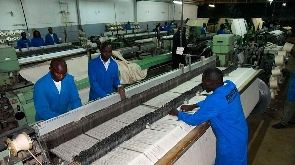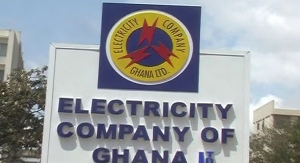The growing appetite for investors is pushing countries in the East Africa region to turn a blind eye to labour rights laws and conservation obligations to attract multinationals.
And experts warn the long-term danger is that of a region that will have rogue players dominating the corporate scene, trampling on the basic rights of the communities.
The revelations emerged even as the world enters the second decade into voluntary UN-endorsed soft power instruments referred to as the United Nations Guiding Principles (UNGPs) on Business and Human Rights. They are meant to ensure that states are aware of their duty to protect human rights and prevail upon companies domiciled within their territory to do so.
The UNGPs, which are voluntary, also emphasise corporate responsibility to human rights at all times, especially in conflict-affected areas, and access to remedies for victims of rights abuses.
Remained on paper
For Africa, the UNGPs, have largely remained on paper, with only two countries. Only Kenya and Uganda have pioneered a National Action Plan (NAP) to domesticate and enforce the principles.
“Initially, businesses were not very open to having a dialogue with us, said Ms Claris Kariuki, a senior state attorney at the Attorney General’s Office in Kenya.
“From Kenya’s NAP consultations, the common human rights issues that always came up were access to land, access to remedy, environment, transparency and labour,” she told The EastAfrican.
Ghana, Nigeria, Tanzania, South Africa, Zambia and Mozambique have initiated processes to conclude a NAP. Critics argue that these countries have continued to overlook violations by corporates.
Implementing standards
The revelations emerged during the African Business and Human Rights Forum in Accra, Ghana. Organised by the African Union on October 12 and 13, it was meant to identify progress, gaps and challenges, and pick lessons from the world’s other regions that are already implementing these standards.
Arnold Kwesiga, a member of the African Coalition for Corporate Governance argues that questions remain as to whether poor and weak countries can call multinationals to order.
“We have to question and look at the capacity of the state to regulate and also the capacity of the state to ensure that all affected communities on the ground are part of the process,” he says.
Harriet Asibazuyo, Social Safeguards Specialist at the Gender, Labour and Social Development Ministry in Uganda, says part of the challenge is the number of stakeholders that need to be brought on board, before she rollout.
“This is a complex subject. We need political support to lend weight to this action plan in its implementation.”
Implementation gaps
The problem may be global, but in Africa, implementation gaps and challenges that undermine compliance mean multinationals playing by tough rules elsewhere enjoy impunity in Africa.
“In February, the European Union adopted the due diligence protocol, which requires EU companies to undertake due diligence on human rights wherever they operate,” says Oyeniyi Abe, researcher and law lecturer at the University of Huddersfield, UK.
“This has implications for Africa where the state is often silent or indifferent to human rights violations,” adding that the protocol imposes a corporate due diligence duty on large EU and third-country companies to ensure a human rights regime that is universal.
This is especially companies in certain high-risk sectors, such as extractives. Under the EU law, they will be tasked to identify and take steps to remedy actual, prevent or mitigate potential adverse impacts on human rights and the environment in the companies’ operations, and their subsidiaries and value chains.
Germany, for instance, whose multinationals have a large supply chain footprint in Africa in the automobile, logistics, infrastructure, energy, mining and pharmaceutical sectors, has already enacted a law, to effect the EU due diligence protocol.
Mandatory rights due diligence
“Our new mandatory human rights due diligence regime has possible impacts and implications for the Africa region,” says Marlene Landes, Senior Policy Analyst, Sustainable Transformation of Global Supply Chains, at the Federal Ministry for Economic Cooperation and Development.
The law, which experts say will be replicated across the EU, has a direct bearing on African businesses, including small and medium-sized companies, because suppliers of German MNCs will have to share more information and meet human rights and environmental requirements, as laid down in contracts with their business partners, Ms Landes explains.
The German Due Diligence Act will enter into force next year for companies with at least 3000 employees, and in 2024, businesses with at least 1000 employees will fall within the scope of the law.
A study commissioned by Friedrich Ebert Stiftung, and published in August this year, says African states are weak and hampered by a lack of regulatory clarity and enforcement provisions to call transnational corporate actors to order when the latter abuse human rights.
Mr Abe, who authored the study, titled “African Union and the State of Business and Human Rights in Africa”, says while the worst cases of human rights violations by corporate entities occur in Africa, such cases are dealt with in the homes states of these multinational companies (MNCs).
“Challenges range from the governance of MNCs, weak corporate laws and lack of political will,” he wrote.
Law on minimum wage
Trade unions in Uganda, for instance, have for decades pushed for a law on minimum wage, as a labour right, and this culminated in the passing of the Bill into an Act by Parliament in 2019, but President Museveni declined to sign it into law arguing that the current law is sufficient.
Analysts said the president was shielding multinationals, which establish in Uganda to take advantage of a cheap labour pool that would be threatened by signing into law the minimum wage Act effectively leaving companies to determine what to pay workers.
Labour rights activists say this state of affairs, massaged by the UNGPs and a NAP on business and human rights that is voluntary, cannot guarantee adequate compensation for workers.
“We want to see things passed into law [because] the law allows you to hold anyone, even the government, accountable,” says Matthew Parks, Parliamentary Coordinator of the Congress of South African Trade Unions.
Binding regime of principles
In their statement, civil society actors at the Forum said they want a binding regime of principles that will cure the gaps and challenges in the implementation of the UNGPs and therefore guarantee that businesses respect human rights.
“While the UNGPs have triggered and facilitated the critical debate on business and human rights, their voluntary and non-binding nature renders them inadequate and ineffective in addressing increasing corporate abuses and enhancing corporate accountability on the continent,” the statement said.
Africa News of Tuesday, 8 November 2022
Source: theeastafrican.co.ke

















